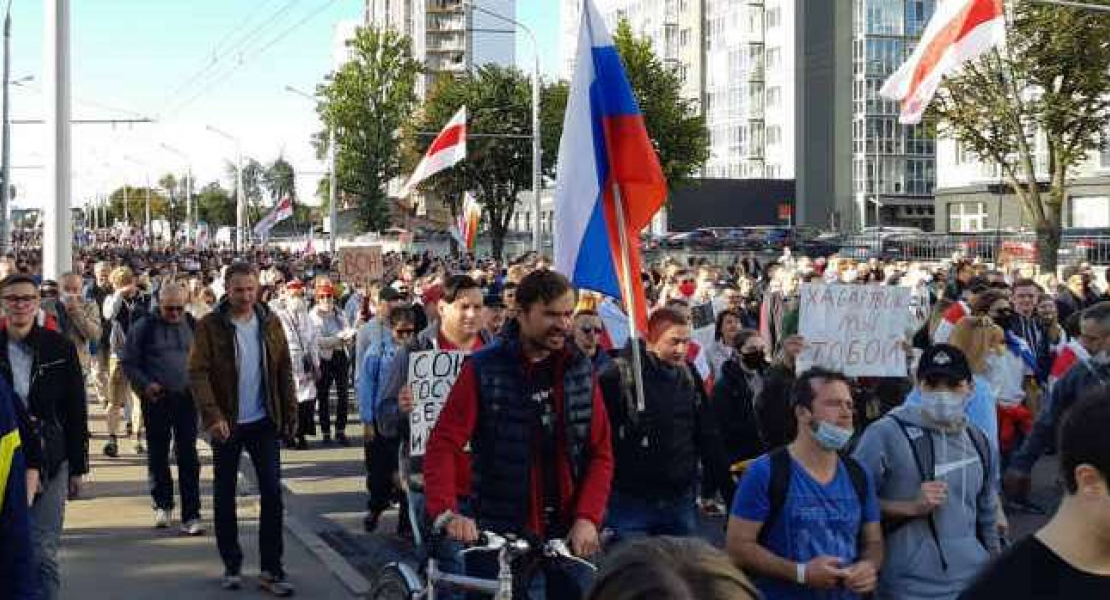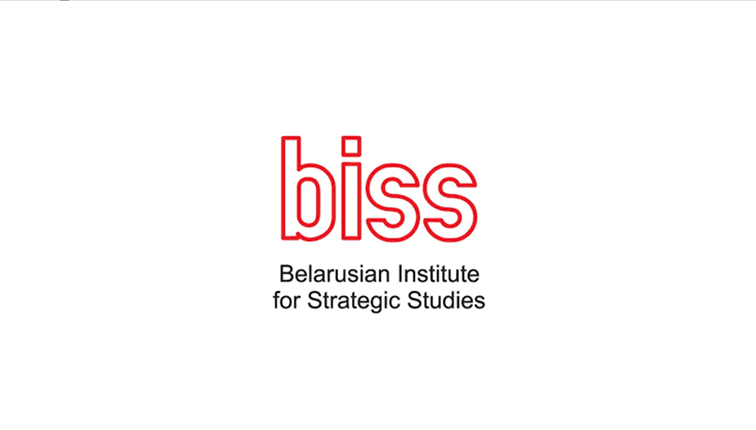Photo: Thinktanks.by
Have Belarusians turned to the West? Hardly so.
A survey conducted by the Belarusian Analytical Workroom (BAW) in November 2020 showed that in Belarus pro-Russian sentiment has fallen and pro-Western one increased as compared to the situation in September this year. Some have concluded that this is indicative of the pro-Western trend in the value orientations of Belarusians.
Hardly is this the case.
First, as the journalist and sociologist Yuri Drakakhrust rightly remarked in his Facebook post, this is indicative of a fluctuation rather than a trend. In November 2020, sympathies for Russia vs. EU are about the same as in December 2019 - see the graph:
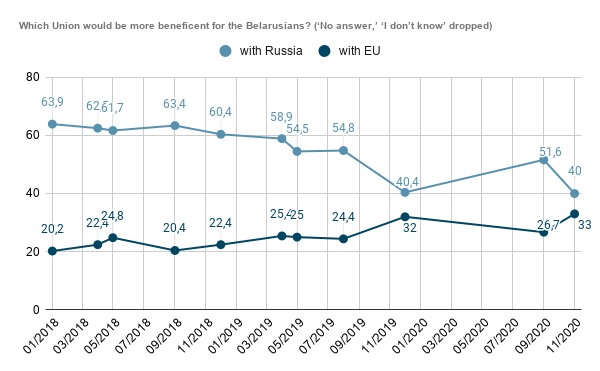
Second, a Chatham House survey conducted in late September 2020 among urban Internet users in Belarus found that among geopolitically opinionated respondents, there were three times as many supporters of integration with Russia as there were supporters of integration with the EU, see the graph:
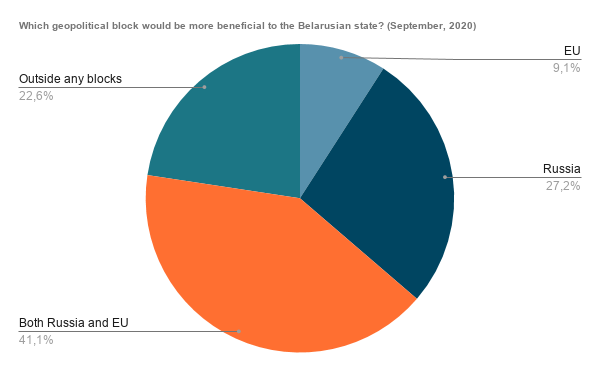
Let us emphasize that this distribution of attitudes was revealed among the urban population in the post-election 2020 period, when the negative attitude to Lukashenka's rule has greatly expanded.
Third, a study of motivations conducted by BAW in 2019 showed that Belarusians with pro-European sympathies had mostly utilitarian motivation, whereas among those with pro-Russian attitudes dominated cultural motivation. Utilitarian-motivated sympathies are more volatile.1
Fourth, in recent decades there have been periods when the share of pro-European sympathies was much more conspicuous: during 2009-2013 the percentage of supporters of European integration averaged 42%, while the share of supporters of the alliance with Russia was about 38% (see the graph).
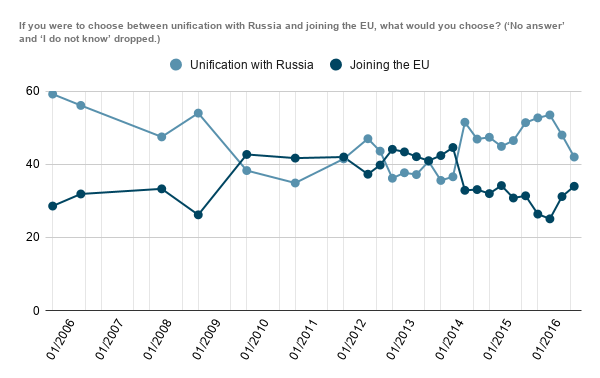
Fifth, among the Eastern Partnership countries, Belarus remains the most Eurosceptic. During 2017-2020, Belarus has had the lowest percentage of those who believe that the EU contributes to the preservation of traditional values of the country. Until 2019 there was the highest percentage of those who believed that the EU did not contribute to their preservation. In 2020 Belarusians were overtaken by Armenians in the negative assessment.2
Sixth,
problems with national identity have not evaporated.
Some think that the wide use of white-red-white flags by the 2020 protest movement means that Belarusians have acquired a distinct national identity. This is far from the case. The white-red-white colours during the mass marches are, first of all, the symbols of the civil anti-authoritarian uprising and fulfils approximately the same function as the orange colour during the Orange Revolution in Ukraine in 2004. Problems with national identity can not be solved so spontaneously and rapidly.
What happens when national identity is weak or contradictory? It is compensated either at the sub-national level (the importance of ethnic, regional, clan and other identities increases), or at the supra-national level. In the case of Belarusians, the latter is happening. Sympathy for Russia, the 'Russian World' as well as inertial attachment to Sovietness are ways to cope with identity problems.
Seventh. Euroscepticism and pro-Russianism are not obstacles to genuine striving for democracy and the rule of law. BISS working analysis of the data of the 7th wave of the World Values Survey showed that over the last decade, Belarusians have acquired a set of values that is incompatible with an authoritarian system.
The post-election 2020 protests show that Belarusians are very decisive and consistent in their fight for democracy. This civic uprising, however, is happening when Belarusians' national identity is still confused and contradictory. The Western emancipatory discourse of the past quarter-century is apparently too problematic for Belarusians. This is why pro-Russianism holds sway as an identity option and is likely to hold at least in the near future.
1 Data not published, but presented during the Congress of Belarusian Studies in Vilnius in September 2019.
2 Annual survey report: Regional Overview. 5th Wave (Spring 2020). EU Neighbors East. March 2020.

